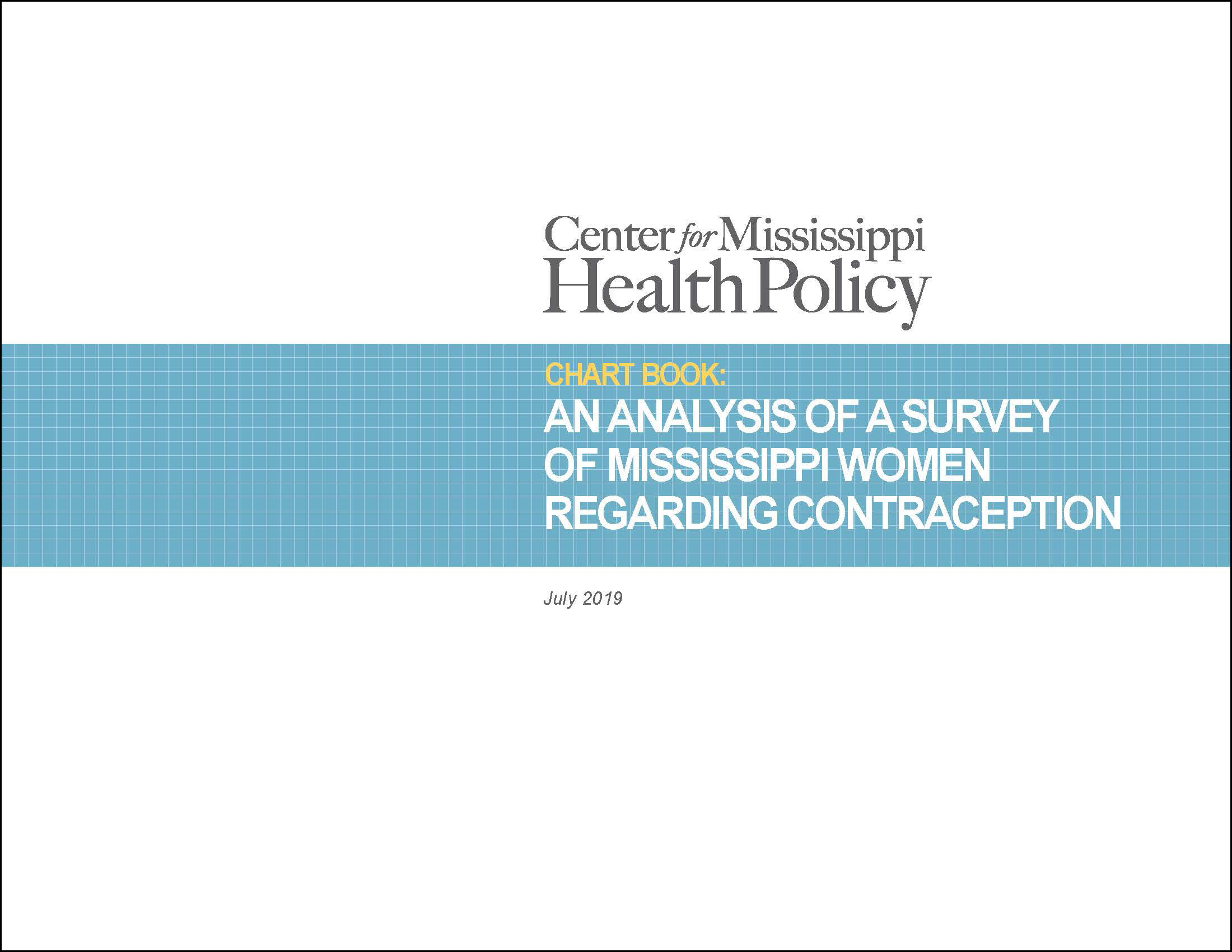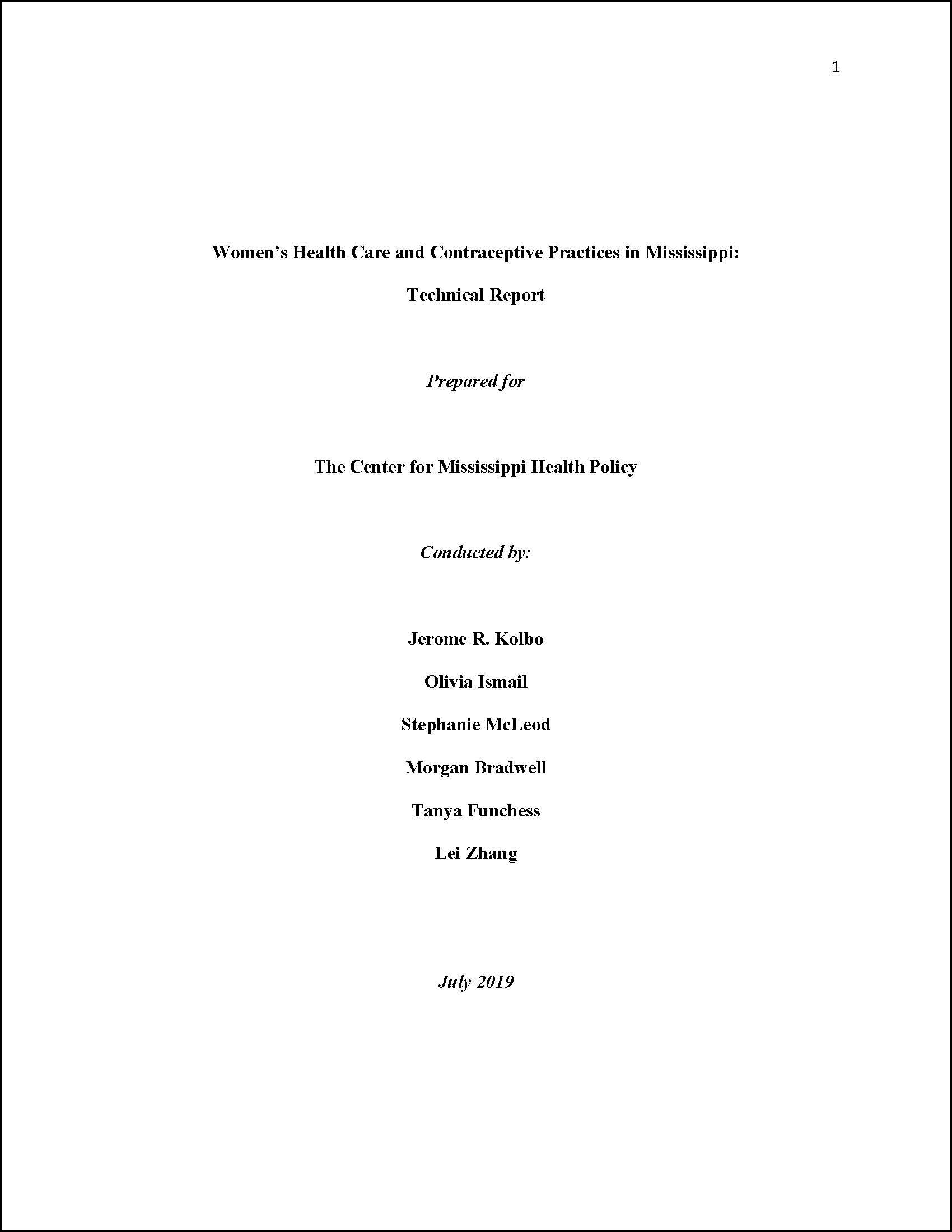Contraceptive Access, Choice, & Utilization: A Survey of Mississippi Women
Wednesday, July 24th, 2019

Women in Mississippi experience high rates of unintended pregnancy, which can be associated with the use of less effective methods of contraception. In an effort to better understand how Mississippians access birth control generally, the Center for Mississippi Health Policy commissioned a survey of Mississippi women of reproductive age to understand what factors influence women’s choice of birth control methods and what barriers, if any, limit them in obtaining the method of their choice.
Survey respondents were recruited from a geographically diverse sampling that included women who had enrolled children in licensed day care facilities across the state. These mothers also recruited women who had not given birth to a child (nulliparous). The final sample included parous (women who have given birth) and nulliparous respondents of reproductive age (15-44).
The following summarizes some of the key findings from this survey. Additional findings, as well as detailed analysis of survey responses, can be found in the Issue Brief, Chartbook, and Technical Report, which can be downloaded from this page (see documents in side bar to the left).
KEY FINDINGS
- Ob-gyn’s were most often reported as the provider type last seen for birth control, but parous respondents were much more likely to see an ob-gyn. Over one-third of nulliparous women relied on a family practice physician or nurse practitioner for birth control.
- Parous women report far higher rates of use of the most effective methods and are less likely to be uninsured.
- Both nulliparous and parous women reported high rates of insurance coverage. Approximately one-quarter of respondents reported that if they did not have insurance they would not be able to use birth control.
- Health care providers play a critical role beyond just facilitating access to birth control; they may often be the primary factor influencing a woman’s choice of methods. Survey respondents overwhelmingly indicated reliance on providers as a key source for decision-making, for help in choosing a method, and for medically appropriate guidance.
- Responses indicate many women have common perceptions that may influence their choice of method or even whether they seek information from their provider about birth control.
- There is a very strong association between the methods women have ever used and the methods for which they report knowing enough about to make a choice.
- Knowledge levels for the most effective contraceptive methods is low and far below those for moderately effective and least effective methods.
- Access to birth control services is significantly different for both parous and nulliparous black women compared to white women in Mississippi. Black women are significantly more likely to report the following:
-
relying on publicly funded clinics;
-
relying on public insurance for birth control;
-
seeing a family practice physician for birth control; and
-
using a least effective method of birth control.
-
More findings from this survey are summarized in the Center’s Issue Brief, and detailed analyses of survey responses can be found in the Chartbook.
FOR MORE INFORMATION
Copies of the Issue Brief can be downloaded HERE. Copies of the Chartbook can be downloaded HERE. Printed copies of the Issue Brief and Chartbook are available by contacting the Center for Mississippi Health Policy at 601-709-2133 or by e-mail at info@mshealthpolicy.com.





